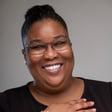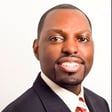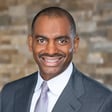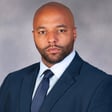Introduction and Concept of Confidence
00:00:00
Speaker
I think that picture would be a black man probably praying with God behind him but also there will be a sun in this photo but somehow it has to have Florida A&M
00:00:30
Speaker
a picture of me standing straight up and knowing that I can do it to exude the confidence that I gained at Florida A&M.
Podcast Introduction: 'Take Your Homeboy to Work Day'
00:00:43
Speaker
What's up world? If you've ever wondered what does my friend, partner, cousin actually do at work, then you'll love Take Your Homeboy to Work Day podcast. I am your host, B.A., and here's what you can expect by tuning in. Each episode, I'll invite a guest to share their career journey, from a youth in school to their rise as a professional.
00:01:08
Speaker
We'll learn the nuts and bolts of jobs, and you'll learn how what they do shows up in our everyday lives. Finally, I'll have them open up about how they find fulfillment through their work. So for anyone interested in hearing the first-hand experience of a specific career, these conversations are your launching pad.
Career Journey of Chase Stewart at ComEd
00:01:29
Speaker
Today, we'll hear about electrical engineering, energy service, and its delivery to your home and or business. Electricity powers the essentials of our lives, like heating and lighting, and dare I say, that many of us take it for granted. That is, of course, until it is out and we don't have it. Energy delivery is complex and requires state-of-the-art infrastructure so that it is safe and reliable.
00:01:59
Speaker
Today's guest is Chase Stewart, a 15-year veteran with ComEd. ComEd is Illinois' largest energy provider that keeps over 70% of the state's population lit and heated. Chase is a steward of Illinois' electricity superhighway.
00:02:20
Speaker
His love for his work is rooted in providing Chicagoans a high quality of life and economic wellbeing that makes Illinois an exceptional place to live. Beyond leveraging his engineering degree for the technical aspects of his responsibilities, he also has mastered clear communication in high stress situations, diligence to details, and building trust from customers and executives.
00:02:48
Speaker
I'm excited to pull back the curtain on such a critical part of our lives that often goes unheralded. So thank you for joining me today, Chase. Thanks, bye bye. Thanks, bye bye.
Role in Power Grid Design and Management
00:03:01
Speaker
So I gave a little introduction about what I think it is that you do. But in your own terms, can you explain ComEd and then what it is you do within ComEd?
00:03:15
Speaker
Yes, so, Baba, I'm currently the manager of new business, large projects. When you talk about new business, large projects, what we do is we design power grids for businesses that are over one megawatt of power. So I know one megawatt of power, if you're not an engineer, you're like, what does that mean? So this is the Facebooks, the Amazons.
00:03:46
Speaker
Right now we're working on Obama Library, the Trump Towers, the skyscrapers downtown, things of that sort. So I work with the big commercial buildings. My group has 22 engineers under me. We have, out of that 22, we have project engineers who actually meet with the customers trying to find out due days, things of that sort.
00:04:16
Speaker
Then we have the design side, who actually get the blueprint from pretty much the customer. And we figure out, based on the power that they need, how we're going to get them the power to build. So it's a hand in hand conversation. It's a lot of nuts and bolts we got to get to, to get to the point where we get to that due date and we energize that customer. Yeah.
00:04:43
Speaker
Man, that sounds impressive. I still remember the first time I actually understood what you did. As you were saying, a new building was being built across the skyline in Chicago. Basically, you had to figure out how do I fit them into the current grid system, get them the power they need without possibly calling outages with all the other businesses and residential areas in the property. I've been amazed with, wow, that is such
00:05:08
Speaker
important work that nobody really thinks about. So thank you for that quick introduction. I guess my first question now is, how did
Pathway to Electrical Engineering
00:05:16
Speaker
you get into this? I mean, I know you study electrical engineering at FAM. I guess first, what got you into that once you study electrical engineering? How did you choose that, you know, that education path? Yeah, so choose an engineer actually started in high school. So in high school,
00:05:39
Speaker
I was the go-to person with installing stereos and people cars and sound systems to that sort. Oh, yeah. Yeah, yeah, yeah. This was way back in the day. I don't think people are still doing it now because of where we are with technology, but trying to figure out how to get my speakers in my car louder. I mean, I didn't realize that would get me to where I'm at today.
00:06:07
Speaker
But once I went on college tours and looked around, I realized electrical engineering is where I landed because I would be able to use what I was doing to install those car stereo systems on a larger level and actually do something with that degree. So that's how I got to the engineering.
00:06:30
Speaker
That makes sense. Now that I think about your ride in college, it makes sense that you started off, I didn't even know. And I guess I didn't even know that you did your own sound system in your own car. So that's even like eye opening for me that you had that knowledge even as in high school. So that's impressive. Thank you. Thank you. Yeah. Yeah. It's no way I can still listen to the speakers the way I used to, but yeah, it was, it was pretty loud back then.
00:06:55
Speaker
If we have time, I'd love to learn a little bit about how technology has changed in sound, but we'll come back to that question at the end. So as you were matriculating through FAMU, reaching your junior and senior year,
00:07:16
Speaker
What? Did you always know that you wanted to go and work for ComEd in Chicago?
Career Shift to ComEd After Family Tragedy
00:07:22
Speaker
I mean, did you ever consider actually using your electrical engineering degree to continue to work in music and work with sound systems?
00:07:31
Speaker
Yeah, so I'll be honest. There is no way you ever would have told me I would have worked for a utility company. I think the utility, it doesn't sound sexy. You look at holes, you look at wires all day. It's no way you can say you want to do this for 15 years. So actually, in college,
00:07:55
Speaker
There was a company called Johnson controls and what they was known for was Putting electronics actually in cars. So the navigations the backup camera things of that sort That's what they were known for and that's that's actually what I wanted to do Had a tragedy in the family and brought me back to Chicago and from
00:08:23
Speaker
my internship that I had with Comm Ed, my junior year, when I graduated from FAMU, I came back on full time. So I think if I didn't have that family tragedy, I definitely would have been doing something with electronics and cars.
00:08:43
Speaker
Gotcha. Well, salute to you for being a leader in your family and doing what it takes to keep that cohesion there, but still finding a way to achieve your goals. So salute to you for that decision you had to make. Yes, yes, yes, yes.
00:09:03
Speaker
And you talked about doing an internship so my next question is twofold because you talked about doing an internship and then this was also your first job out so one of the questions I love to learn and ask is how much somebody can make those first years when they go into a field.
Insights on Salaries and Career Advancement at ComEd
00:09:21
Speaker
So if you don't mind, you don't have to share your personal, how much you personally made, but if you could share a range first for your internship, how much did you make? And then for your first job with ComEd, what's the range that somebody can expect to make? Well, I'll do better since since we're at 15 years now at the company and with inflation and things that has to work.
00:09:44
Speaker
The range has changed, but currently now when we're offering straight out of college, you're between about 75 and 90,000 based on your internship and experience. And you can actually get more if you actually have a master. So that's about the range that we're working with straight out of college.
00:10:09
Speaker
And that's a nice cushion to fall back on. Okay, thank you for sharing that and being a friend. So you shared how much you could make or somebody could make coming into it. As with all businesses, when they are putting money for an employee, they're expecting a return back to the company based on what you're able to produce.
00:10:35
Speaker
So I guess the question I'm thinking is, how do you make money for ComEd?
Future of Energy: Efficiency and Innovations
00:10:48
Speaker
Ooh, that's a good question. So with ComEd and the utility industry, I think the old days of just the meter spinning,
00:11:04
Speaker
is long and gone. So what my department did is, like I say, we designed the power grids. We're always thinking about energy efficiency, what we could do different. We deal with solar. We deal with all type of things to figure out different ways that we could power the community. There's new technology out called micro grids.
00:11:31
Speaker
you guys might have heard about this. These are like communities have them where you can pretty much have your grid inside of a grid. So like looking forward in the future with technology and things of that sort, we're always trying to find different ways that we can power up the customer. So like I stated in the beginning, just the meter running,
00:11:57
Speaker
that we see on the back of our house is just one way that we bring in revenue to the company.
00:12:04
Speaker
Gotcha. And you talked about how you work a lot more with corporations, large buildings that are trying to come onto the grid and how you can keep them safe but still give them the power they need. What's that whole process like? I guess if I am a developer, a corporate building developer, and I want to bring my business onto the grid, and I have to go to comment, and I end up with you as my representative,
00:12:34
Speaker
What is that conversation like? It's very interesting because if you think most of the projects that I deal with, the first time we do a site meeting, we're going on site and there's no building. There's usually just a grass area or things of that sort.
00:13:01
Speaker
They're giving us blueprints about how they're going to build the building. We're looking at the developer. We get all different types of engineers. Like I stated, we got project managers, and we're trying to see what the customer wants. Now, through the building stages, customers usually, they change their plans. You have some buildings that say, hey, I want the water on this side of the building.
00:13:29
Speaker
they realize once they start designing the building, Hey, I need to move the water on a total different side of the building. So what we do is we just try to figure out based on their low letter of how much power they need, how are we going to get the power to them? How can we design it where whatever space they give us, we can accomplish their goals. So it's, um,
00:13:53
Speaker
It's constant communication back and forth to make sure the customer gets what they need. But like I say, those first meetings are very pivotal because this is when the developer and the customer is telling us, hey, I'm building this building. It's going to be a data center. It's five megawatts of power. So we go back and we figure out.
00:14:16
Speaker
How are we going to find a way to get them five megawatts of power to design this? So these are very intense meetings that we go to. Yeah, they sound like, how many people are in those meetings? And I guess who are the other, within ComEd, who are some of the other people you have to collaborate with that would be in those meetings? Yes, yes. So you have new business, large projects, design team.
00:14:41
Speaker
Sometimes you have the highway, I mean the high rise engineers, you have the overhead and underground department. So you can have up to 15 and 20 people at that site visit to try to figure out what we can do to get this customer power.
00:15:01
Speaker
So one thing I like to do is bring to life what it is my guests do. And so right now you're focused on corporate business. So if I'm walking through a new skyscraper, what is like a physical manifestation of what you planned that I could see and be like, oh, that's what Chase does. Or that's what a large business program manager does for comment.
00:15:32
Speaker
Yeah, so actually we are the rooms that usually have the yellow signs that says beware, the electrical behind here and things of that sort. So usually don't have access to these places that we design. But if you happen to get in these buildings, you'll see transformers, you'll see all type of
00:15:56
Speaker
breaker system things of that sort that's behind those walls, but like I say the normal Just everyday worker you won't have access usually there's some type of security clearance to get in these these rooms because Just with the high voltage of power and if you don't have on a proper PPE and things of that sort you can end up touching something and That can lead to a fatality
Integrating Renewable Energy into Grids
00:16:26
Speaker
OK, OK, OK, OK. Let's see. Actually, one of the things you alluded to earlier was how technology was changing how power is distributed or planned for. You even mentioned that there could be communities. There's grids within grids.
00:16:50
Speaker
So as we're thinking about how technology is advancing, where do you see power going in 15 to 20 years?
00:17:03
Speaker
Man, bye-bye. If I knew that answer, I'd be Jeff Bezos. Touche. Right, right, right. What I will tell you is right now as a utility company with solar being something that everybody's exploring. So if we think about solar, solar feeds into our grid. So I know some people who have solar,
00:17:31
Speaker
If you don't know how it works, let's just say you have a single-family home maybe husband wife and three kids your normal utility bill is Let's say two to three hundred a month. Yeah, you can end up getting solar and they can Probably range you about fifty to seventy dollars a month just based off the solar panels feeding into that your actual breaker box, right? so
00:18:02
Speaker
If we think about it on a larger scale and we think about everybody in America goes to solar, then we have a whole different type of grid, right? That's where the utility industry has to continue.
00:18:20
Speaker
to be strategic in figuring out how we can expand. Like I stated a couple of questions ago, the days of just the meter spinning for revenue are totally different with solar because solar actually feeds into our grid. So that's something that we're working on. And I imagine in 15, 20 years from now, there'll probably be a whole different utility.
00:18:45
Speaker
Gotcha. You know, I guess before I talked with you, in my head, I was thinking that maybe solar would be a competitor to you all, to ComEd or to energy companies. But the fact that you all have found a way to integrate it into your system also, and that y'all are partners, that that really, that was eye opening, because I didn't perceive it that way. What about, what about, let's say, wind energy or hydro energy? Do you all consider them partners to say what you do solar or how do you all look at those sources of energy?
00:19:15
Speaker
So if you think about all of what you name generate power, right? And what we do is we try to find different ways to generate power because the days that a fossil plants and the coal plants, that's pretty much of the past and a lot of them are going away. So that's just a new way of technology on how we're generating power. Gotcha.
00:19:45
Speaker
So you shared a little bit about some of the most recent work you've done, being with large developers and corporate companies. I know you've been at ComEd for over 15 years now. What's another job that you've held that you really enjoy doing? Oh, man. I'll tell you. So I've been in ComEd since 2006.
00:20:13
Speaker
Five different rows I I think The position I have now I like it. I can see these skyscrapers. I could see the big buildings I could see where they come from, but I think My favorite job was actually was an FLS. It's a frontline supervisor and as a frontline supervisor
00:20:38
Speaker
I'm actually out there with the union members and these are the guys that you see on the poles and the bucket trucks and things of that sort. And these are the first responders who actually is getting the power on and coming to your house and trying to figure out what can we do to install the power.
00:20:57
Speaker
Wow, okay. So let's say, so if there's a snowstorm that comes through Chicago, let's say it knocks out a couple of blocks, that's when you and your team would jump into action and try to fix that, right?
00:21:09
Speaker
Oh yeah, it's go time. It's go time. We got to get power back on. Man, that sounds, that sounds, so your team would be out there and let's say, you know, freezing temperatures, maybe the storm is even still going on and they're still working hard trying to get the, uh, the power back on for customers, right? Yes. So, so when you have a power outage, it's all hands on deck.
00:21:34
Speaker
No matter the temperature, hot, cold, rain, snow, we have to do whatever to get this customer back on.
00:21:42
Speaker
Wow, okay. That sounds like tough work. And I know we've talked about this just separately conversations, but let's say we'll use Hurricane Ian that just came through in Florida and that sometimes you will, not you specifically, but that some of your team or people who have that skillset and knowledge will go to other areas to help work with those grids.
Utility Collaboration During Disasters
00:22:09
Speaker
Do I remember that correctly? Is that what would actually happen?
00:22:13
Speaker
Definitely, if you think about it, when you talk about utility companies, there's usually only one utility in most cities across the US. So just like you said, those hurricanes, I've seen crews to Puerto Rico. I've seen crews to Florida. I've seen crews to New York. I've seen crews everywhere.
00:22:40
Speaker
I actually even had the experience of going down to actually Florida one time. And what happens is when you go down there, you know, you're in charge of your crews and we load up all the trucks and we drive down there to find out how we could get this power on. So all the utilities work together because the common goal is get the customer back on as soon as possible.
00:23:05
Speaker
Yeah, yeah. That's why in the intro I said, you know, you love your job because you want to provide people with a good quality of life and being able to have heat and light is a critical part of that. So bringing that passion to it that you do, I imagine it really shines through with your team and with response rates that get it. You know, you don't leave people out of power too long because you know that's affecting their quality of life.
00:23:29
Speaker
Definitely. People never look at the utility company as a customer service business, but just to see people's faces light up once they see their furnace come on, what their lights come on.
00:23:47
Speaker
We're, we're probably one of the biggest customer service industries in America. Yeah. No, people know. I can admit that I didn't look at this until we had this conversation. And I imagine more people will start to look at, look at energy companies as customer service. So that's a thank you for all of that. You do, man. Let me ask you this now. What has been your proudest achievement in your career so far?
Leadership and Diversity in the Energy Sector
00:24:15
Speaker
I think my proudest achievement is I think coming from graduating from Florida A&M and all the excellent black people and just black excellence down in Florida A&M, coming to utility company and with my five rows.
00:24:40
Speaker
I think most of these roles that I went in, I was either the youngest or maybe the only black on the team and being able to be successful and lead these teams and do well in the company. So I think that's my proudest accomplishment.
00:24:54
Speaker
salute salute you know a lot of people have um a lot of my other guests have shared that oftentimes they're the only black person in the room sometimes even the youngest and that maybe early on they maybe have suffered from imposter syndrome are you familiar with imposter syndrome
00:25:12
Speaker
It's where you don't feel like you belong in the room. So you don't feel like you have the right to be in the same room. Have you ever had those skills inside or have you always had this internal confidence that, hey, I know I have the education and the soft skills, such as communication, dealing with high stress situations. I've earned the right to be in these rooms, even though I may be young and I may be one of the few minorities in the room.
00:25:39
Speaker
Yeah, so like I say, Florida A&M prepared me for this situation. Florida A&M, beta new chapter to Alpha Phi Alpha, attorney incorporated definitely, definitely prepared me for this situation.
00:25:57
Speaker
because when I go in these rooms, I understand that imposter syndrome because I understand they don't think I should be there. I understand they think I need more experience. I don't have enough, things of that sort of whatever it may be. So just from the things that I learned at Florida A&M and through Beta Nu,
00:26:21
Speaker
I knew, you know, it's times at night when others are maybe partying or doing whatever that, hey, I got to get the upper hand to make sure I'm prepared. So just with that knowledge and that background that I learned down in Florida A&M, I'm always prepared in a step ahead. Hell yeah. Hell yeah.
00:26:43
Speaker
So my next question, it's abstract. So imagine you have a painter next to you, and he wants to commemorate your career, the work you've done in a picture. What would you tell him to draw? How would you describe that picture to the painter? Wow, what a question.
00:27:13
Speaker
I think that picture would be a black man probably praying with God behind him. But also there will be a son in this photo.
00:27:41
Speaker
But somehow it has to have Florida A&M and it has to have a picture of me standing straight up and knowing that I can do it to exude the confidence that I gained at Florida A&M and knowing that I have God on my side.
00:27:59
Speaker
Salute. So I know that's a tough question, but thank you for creating that visual and that image. That's really what I wanted to create is how can we take all these experiences and then put it into like a picture and people can understand visually the work that you do and how you feel about it. So thank you. Yep, yep.
Advice for Young Black Professionals
00:28:19
Speaker
So we've talked a lot about the good of what you've been doing. But as with anything, there's also a bad or an ugly or maybe watch outs. So if there was somebody young, you just hired them out of fam, they're coming onto the team. What's one watch out that you would give them as they start their career? Yes, they start their career. Starting your career.
00:28:50
Speaker
We know the stereotypes that we have as black people about being on time, about looking the par, about, you know, sometimes standing out when we shouldn't. We got to realize corporate America has their view of us already. So, hey, be on time. Ask questions.
00:29:16
Speaker
Don't be afraid to raise your hand. Don't be afraid to work harder. And just realize that to get to the top, we still fighting. We still got work to do. And hey, you'll get there. It takes time. You might get passed over for some promotions or different opportunities.
00:29:43
Speaker
but your knowledge is something that they can't take from you. So just work hard, be on time, and hey, let your light shine. Wise words, wise words. Another kind of abstract question for you. When's the last time you've been at work and you just fell out laughing?
00:30:11
Speaker
Oh man, who fell out laughing, man. I will say this. So I have a lot of fun with my team. I have a very diverse team. So, but I will say engineers are not fun people. And so I'm a little different. I'll say my team is a little different because most of the time in the office,
00:30:40
Speaker
You know, they sit at their they're sitting at cubicles with their hairphones on you know AutoCAD they're on different programs designing and There there's barely even talking so I think the last time I laugh was because There's one guy who
00:31:04
Speaker
He's pretty quiet and I joined the team about a year and a half ago. And you know, last year we were dealing with the pandemic, but this year he came to work in a Halloween costume. So this, it called me totally off guard because I just didn't see this coming. And I think that was like the first time like I really laughed
00:31:31
Speaker
at the team because I was like, you don't really think of engineers as having so much personality. But this guy, he was pretty funny. He was dressed as a clown. And it was pretty fun. It was pretty fun. Is he going to start a trend? I mean, is next year, are y'all going to start all dressing up to come to work?
00:31:50
Speaker
Yeah, yeah, yeah. I got to jump on board. I mean, I know that I thought about it. And I said, no, my team would look at me crazy. But now, since I got the green light, who knows? Who knows? Black Panther, here I come. Something is coming. Wait, why not Killmonger though, man? I would prefer you come as Killmonger than Black Panther, man.
00:32:13
Speaker
Oh, hey, you know what? I haven't caught up. I'm gonna let you know by next week. That's probably who I need to be. Okay. All right. That, that. Well, Chase, man, this has been a great conversation. Before we go, I have a, I have a curveball question for you, sir. So prepare yourself. I didn't put this in the email that I sent. So prepare yourself.
00:32:37
Speaker
There is no right or wrong answer. It's really just an opportunity for my guests to learn a little bit more about you and your personal interests. So you ready? Okay. All right. So imagine you are a record label A&R and you get to put together your dream song. So you get to choose any three artists and one producer.
00:33:07
Speaker
Which three artists would you choose? And then which producer would you choose for the song? Oh, man. Oh, man. This is a tough one. I was waiting. Callie does this already. Wait a minute. So you're Callie for a day. You get to be Callie for a day, man. I can be Callie for one day. All right, OK. All right, Callie. Let me see.
00:33:31
Speaker
All right, so Jay-Z and Nas, they done with their beef, right? Because Nas got musical title now, so all right, we can do that. I want a Jay-Z, Nas, in some way, I need a big verse. I think big and need to be on that verse. I don't know how. Okay. So you're going all New York with your artists. Man, you just turning your back on Chicago like that, huh?
00:33:57
Speaker
So, all right, I don't want to get thrown off the podcast, but, you know, we have some problems in Chicago right now with a couple of our artists. You know, I don't want to get thrown off the podcast. You know, we have some technical difficulties that we try to work through in Chicago. Yeah, so, yeah, we're gonna stay in New York right now. Gotcha, gotcha. Okay, and then which producer?
00:34:26
Speaker
Ooh, man. I'm gonna stay with Cali.
00:34:38
Speaker
OK. All right. Yeah, he has a wide range of sounds and a lot of other engineers that he works with that if you put those three in a room. See, because you know, Callie has the cheat code, right? Because what Callie does is he can hear a song. And even though you say, I only want three artists, you can look up the remix and you get 12 artists. So Callie got the cheat code.
00:35:02
Speaker
Bat, Bat, Biggie, Jaycee, Nas, and then Khaled doing production. I would love to have the four of them in the room creating, talking about concepts, themes, where they wanna take it. That would be a pretty, that'd be a badass song.
00:35:19
Speaker
awesome well man this was an amazing conversation i appreciate you once again coming on and pulling the curtain back about what working for an energy company has been like thank you for being honest and transparent about your personal experiences especially some of the emotional ones
00:35:36
Speaker
Your decision to move back to Chicago after graduating, how you like leading your teams. I really appreciate everything that you shared. I know the audience is going to learn from this. And just, I guess, thank you once again. Is there anything... My name's online. Yeah, is there anything you may want to say leaving? You don't have to necessarily, but is there any last things you may have in your head that you may want to share?
00:36:01
Speaker
No, we oh I got one thing. I got one thing The fight lives on keep grinding. Good job. Bye. Bye Man, let's get to work Respect. Thank you. Let's get to work Peace













